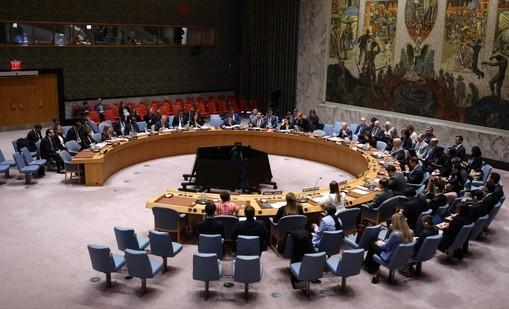
Was LeT involved? UNSC asks Pak on J&K attack, refuses to accept ‘false flag’ claim
In a recent closed-door meeting, members of the United Nations Security Council (UNSC) raised concerns about the recent attack on tourists in Pahalgam, Jammu and Kashmir, and questioned whether the terrorist outfit Lashkar-e-Taiba (LeT) was involved in the incident. Pakistan, which had initially claimed that the attack was a “false flag” operation by India, faced resistance from UNSC members who refused to accept this narrative.
The meeting was requested by Pakistan and was held behind closed doors to discuss the Pahalgam attack, which occurred on October 7, 2022. The attack left several tourists injured, and the Indian government accused Pakistan-based terrorists of being involved in the incident.
According to reports, UNSC members questioned Pakistan about the involvement of LeT, a terrorist outfit known for its links to the Pakistan-based terrorist group Jaish-e-Mohammed (JeM). LeT has been responsible for numerous attacks in India, including the 2008 Mumbai terror attacks that killed over 160 people.
Pakistan has consistently denied any involvement in the Pahalgam attack, and instead accused India of orchestrating the incident to defame Pakistan. However, UNSC members were not convinced by Pakistan’s claims and instead pressed for answers on the involvement of LeT.
Some UNSC members reportedly brought up the targeting of tourists on the basis of religion, which is a common tactic used by terrorist groups like LeT. The attack on tourists in Pahalgam is seen as a disturbing trend, as it highlights the vulnerability of innocent civilians to terrorist violence.
The UNSC meeting is a significant development in the context of the ongoing tensions between India and Pakistan. The two countries have a long history of conflict, and the Pahalgam attack has further strained their relations.
Pakistan’s claims of a “false flag” operation are widely seen as an attempt to deflect international attention away from its own role in supporting terrorism in the region. The country has been accused of providing safe haven to terrorist groups like LeT and JeM, which have carried out numerous attacks in India.
In recent years, India has taken several steps to counter Pakistan’s support for terrorism, including the surgical strikes across the Line of Control (LoC) in 2016 and the Balakot airstrike in 2019. The Indian government has also been pushing for international action against Pakistan for its role in supporting terrorism.
The UNSC meeting is a clear indication that the international community is no longer willing to accept Pakistan’s denials of involvement in terrorist activities. The refusal of UNSC members to accept Pakistan’s “false flag” narrative is a significant blow to the country’s attempts to deflect international attention away from its own role in supporting terrorism.
In conclusion, the UNSC meeting on the Pahalgam attack is a significant development that highlights the international community’s growing concern about Pakistan’s role in supporting terrorism. The refusal of UNSC members to accept Pakistan’s “false flag” narrative and the questioning of LeT’s involvement in the attack are a clear indication that the international community is no longer willing to accept Pakistan’s denials of involvement in terrorist activities.



